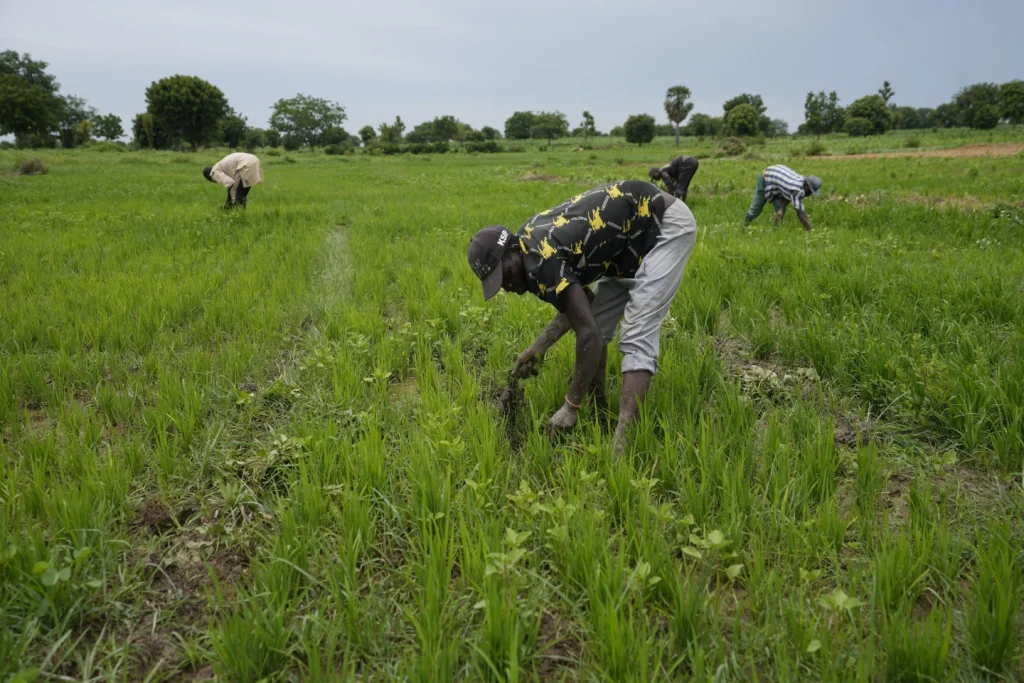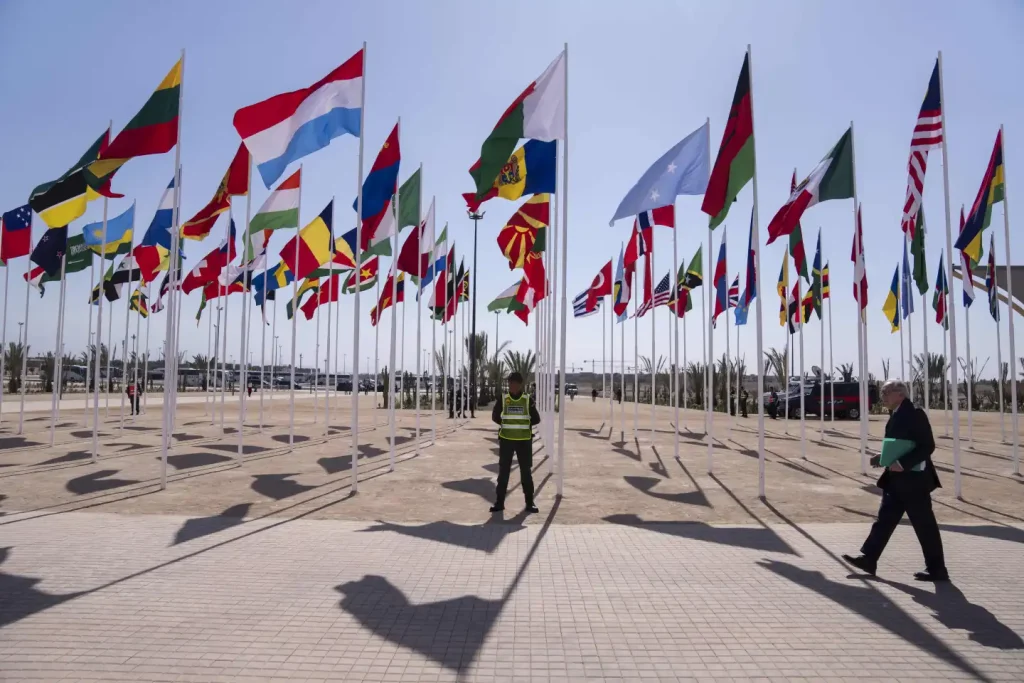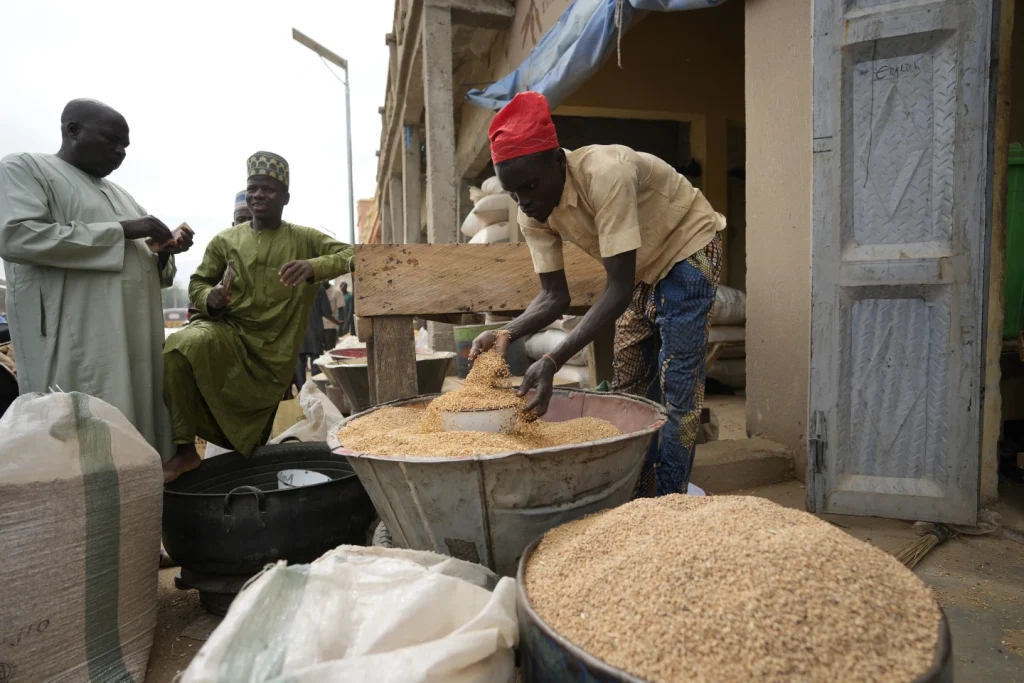The effects of climate change are particularly harsh in many impoverished African countries. These nations often experience severe droughts, scorching heat, and dry land, as well as unpredictable rainfall and devastating floods.
These shocks not only exacerbate conflicts but also disrupt livelihoods, especially for those who rely on farming. Unfortunately, climate challenges lie at the heart of the vulnerabilities faced by conflict-ridden countries in Africa’s Sahel region, including Burkina Faso, Chad, Mali, Niger, and northern Nigeria.
Experts estimate that adapting to these challenges could require an annual investment of up to $50 billion, while the transition to clean energy could cost as much as $190 billion per year, both of which are overwhelming costs for Africa.
With limited space in their budgets, these countries cannot afford to borrow more to fund climate goals, as it would only worsen their already considerable debt burdens. Consequently, African leaders are calling for a rapid increase in financing to address this urgent issue.
The meetings of the International Monetary Fund and the World Bank held in Marrakech, Morocco this week have been deemed by some leaders as an opportune platform to initiate discussions surrounding Africa’s financial challenges and its capacity to effectively manage climate shocks.
These leaders assert that addressing the financial obstacles faced by the African continent, coupled with developing strategies to mitigate the impact of climate shocks, are crucial steps towards ensuring sustainable economic growth and resilience in the region.
By convening at this global forum, policymakers, economists, and experts from around the world can engage in meaningful dialogue and collaborative efforts to devise innovative solutions for Africa’s financial stability and climate resilience.
It is widely recognized that Africa’s economic development is intricately linked to its ability to adapt to the adverse effects of climate change, and therefore, these discussions hold immense significance in charting a path towards a more prosperous and sustainable future for the continent.
In the face of mounting criticism that lending institutions are neglecting the impact of climate change and the vulnerabilities faced by impoverished nations in their funding decisions, a call for change has emerged.
According to an opinion column published in The New York Times, Kenyan President William Ruto, African Development Bank President Akinwumi Adesina, African Union Commission chairman Moussa Faki, and Patrick Verkooijen, the chief executive of the Global Commission on Adaptation, collectively argue that the global financial system is in dire need of an overhaul.
They assert that the system is outdated, dysfunctional, and unjust. The leaders contend that international financial institutions are too constrained in their capacity and scope to fulfill their mandate, rendering them ineffective in addressing pressing challenges like climate change.
Moreover, they argue that the system is fundamentally unjust as it perpetuates discrimination against impoverished countries.

In recent years, there has been a gradual increase in climate funding allocated to Africa, acknowledging the continent’s minimal contribution to global emissions while recognizing its heightened vulnerability to climate change due to limited financing and adaptive capacity.
Consequently, major development banks have started acknowledging climate change as a substantial economic threat.
During a panel discussion held in Marrakech this week, IMF economist Daniel Lee made an important announcement regarding the organization’s approach to climate change.
Lee revealed that the IMF is now incorporating climate change considerations into its policy advice, capacity development, and lending practices.
While he did not provide specific details about the size or allocation of funding, he did highlight the existence of an IMF program aimed at assisting developing countries, particularly those in Africa, in addressing climate-related challenges.
However, it is worth noting that only one African country, Rwanda, has received financial support from this program, amounting to $319 million over a period of three years.
This revelation echoes the concerns expressed by African leaders and experts who argue that climate financing to the continent has been inadequate, especially for countries in the Sahel region that lack stable and recognized governments, often being governed by military juntas.
Carlos Lopes, a professor at the Mandela School of Public Governance in South Africa, lamented that the actual level of funding has fallen short of expectations.
He emphasized that while a significant portion of funding is directed towards mitigation efforts, adaptation, which is a top priority for the continent, receives less attention and support.
This imbalance has far-reaching consequences, as illustrated by the situation in Niger and northern Nigeria.
These regions, grappling with political instability and environmental challenges, are witnessing the loss of thousands of hectares of arable land due to soil erosion and dry conditions.
This loss has not only intensified competition among farmers and livestock herders for dwindling resources but has also led to a reduction in economic opportunities, thereby providing fertile ground for armed groups to recruit and thrive.
Irrigation projects have been widely recognized as one of the effective measures to adapt to the impacts of climate change.
However, the progress made in these projects is being undermined by the escalating violence, which not only threatens the safety of farmers but also hinders their access to farmland.
This exacerbates the challenges faced by farmers who are already grappling with lower crop yields due to extreme heat levels and unpredictable rainfall.
Ibrahim Audi, a wheat farmer in Nigeria’s far northern Katsina state, lamented that the prevailing insecurity often prevents them from tending to their farms. Femi Mimiko, a professor of political economy and international relations at Nigeria’s Obafemi Awolowo University, expressed his dissatisfaction with the meager amount of climate funding allocated to Africa, considering the magnitude of the problem.
He emphasized that the conditions imposed by the International Monetary Fund (IMF) and World Bank for accessing funding further compound the challenges.
Moreover, it is crucial for climate financing in Africa to address the persistent debt crises that many countries in the region are grappling with, as highlighted by Lopes.
According to African leaders, Africa’s debt repayments are projected to reach a staggering $62 billion this year, surpassing the continent’s expenses in adapting to climate change.
These leaders have reiterated their call for a halt in foreign debt repayments, a plea that was initially made at the Africa Climate Summit held in Kenya last month.
Experts have also highlighted the tendency of leaders to underestimate the connection between climate change and its contribution to violence and economic issues.
They argue that national policies aimed at addressing climate change are inadequate, with little to no emphasis on the crucial link between climate change and conflict in the Sahel region.
Hassan, a prominent voice on the matter, urges leaders to move beyond merely addressing the conflicts themselves and start prioritizing climate change as the root cause of the problems affecting these countries.
The situation in Burkina Faso, Mali, and Niger, all of which are currently under military rule, is alarming. The International Rescue Committee reports that 16 million people in these countries require humanitarian assistance, marking a 172% increase since 2016, while over 5 million are facing severe food insecurity.
The humanitarian group attributes this deepening crisis to a combination of conflict and climate change, which have severely impacted agriculture, the primary source of livelihood for the majority of the population in these three military-led nations.
The statement made by Mimiko highlights a crucial aspect that has significant implications for governments worldwide.
The presence of illegitimate governments poses a formidable constraint on their ability to not only fulfill the requirements set by international financial institutions such as the International Monetary Fund (IMF) and the World Bank but also to access the much-needed support provided by these organizations.
This observation sheds light on the intricate relationship between the legitimacy of a government and its capacity to secure financial assistance from influential global entities.
The remark by Mimiko underscores the importance of having a legitimate government in order to navigate the complex landscape of international finance and development.
It serves as a reminder that the legitimacy of a government plays a pivotal role in determining its ability to engage with and benefit from the support offered by international financial institutions.
In considering the complex issue at hand, it becomes evident that a multifaceted approach is required to address the challenges faced by the juntas and their inability to effectively govern their respective countries.
As the speaker aptly suggests, a crucial step in this process is to engage in a persuasive dialogue or, if necessary, employ a more assertive approach to compel these ruling bodies to commit to what can be termed as timely redemocratization.

This concept encompasses the urgent need to restore democratic principles and practices within these nations, which have been marred by authoritarian rule.
By encouraging the juntas to embrace this path, we can pave the way for a more inclusive and participatory form of governance, one that upholds the values of democracy, human rights, and social justice.
It is only through such a transformation that these countries can truly progress and flourish, as the juntas, as acknowledged, lack the capacity and expertise required to effectively manage the intricate affairs of their respective nations.
Therefore, it is imperative that we take decisive action to ensure the timely redemocratization of these countries, thereby fostering an environment that is conducive to sustainable development, stability, and prosperity.
